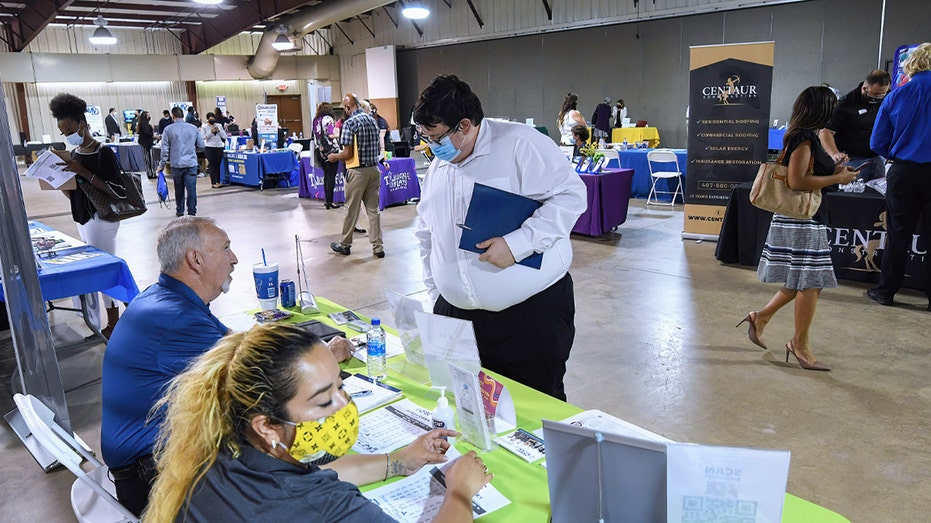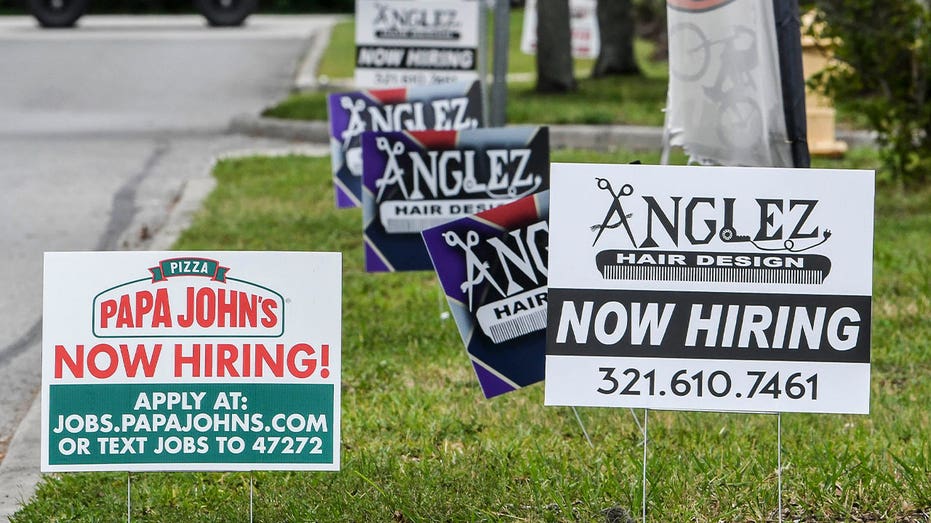US workers poised to get biggest raise in a decade as inflation soars
Wages expected to rise at fastest pace since 2008
Will new Fed rate hikes help inflation?
Former Council of Economic Advisers acting chairman Tyler Goodspeed discusses latest inflation fears on 'Mornings with Maria'
American workers are in line to receive one of the biggest pay raises in more than a decade, reflecting an extremely tight labor market and the highest inflation in 30 years.
A survey by the Conference Board released on Wednesday shows that companies are setting aside 3.9% of total payroll for wage increases next year – the steepest one-year jump since the 2008 financial crisis. The estimate is up from April, when the Conference Board projected that companies were budgeting for a 3% pay increase.
US HIRING STUMBLES IN NOVEMBER AS ECONOMY ADDS JUST 210,000 JOBS
The report emphasizes the lengths companies are going to in hopes of attracting new workers: Growth in wages for new hires, along with accelerating inflation, were the biggest drivers of the jump in salary increase budgets. Nearly half of respondents – 46% – said the increase in wages of new hires played a role in wage increases, while 39% said that increased inflation influenced their decision.

People seeking employment attend the 25th annual Central Florida Employment Council Job Fair at the Central Florida Fairgrounds. (Paul Hennessy/SOPA Images/LightRocket via Getty Images / Getty Images)
On top of projecting higher salaries in 2022, businesses are already raising wages for their employees. The survey showed that average actual raises in 2021 climbed from the April survey period to November. The average business raised its salary budget by 3% in 2021 so far, up from 2.6% in April.
Actual raises also climbed from the April survey period to November. The average business has lifted its salary budget by 3% in 2021 so far, according to the report. That's close to the levels seen just before the pandemic shut down the nation's economy in February 2020.
Increases have been particularly notable for workers under the age of 25 and for people who switched jobs in the past year, suggesting that much of the wage acceleration has been among recently hired employees. The faster wage growth of new hires has led to a phenomenon known as "pay compression," which is when wage premiums for worker experience shrink. As a result, more experienced workers – feeling their pay advantage is no longer significant – go look for a new job, leading to a higher turnover of more experienced workers.
Faced with a high turnover rate, employers will raise wages faster for current employees in order to maintain payroll. The U.S. is currently grappling with a record-high quits rate: The Labor Department reported last month that 4.4 million Americans quit their jobs in September, or about 3% of the nation's workforce.

Papa John's Pizza and Anglez Hair Design on N. Wickham Rd. have multiple signs around the businesses looking for employees. (Craig Bailey/FLORIDA TODAY via USA TODAY NETWORK / Reuters Photos)
At the same time, higher inflation has shown no signs of slowing down, increasing the need for employers to give workers a bigger cost-of-living adjustment.
GET FOX BUSINESS ON THE GO BY CLICKING HERE
In this scenario of both hot inflation and a tight labor market, wages are expected to continue rising, with growth remaining well above 4% through 2022. Wages for new hires, and workers in blue-collar and manual services jobs, are expected to grow faster than average.
"A wage-price spiral — where higher prices and rising wages feed each other, leading to faster increases in both — may already be in the works," Gad Levanon, chief economist at the Conference Board, said in a blog post.
The survey was based on responses from 229 U.S. companies from a variety of sectors. More than half of the firms surveyed had more than 10,000 employees.





















